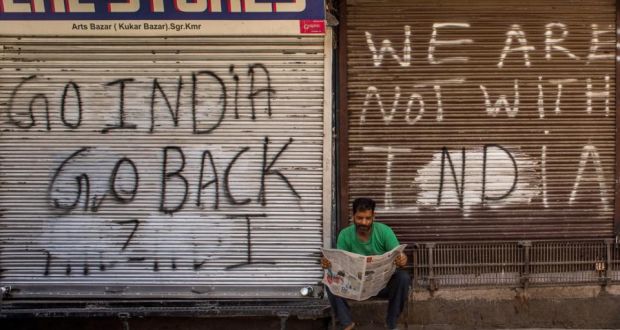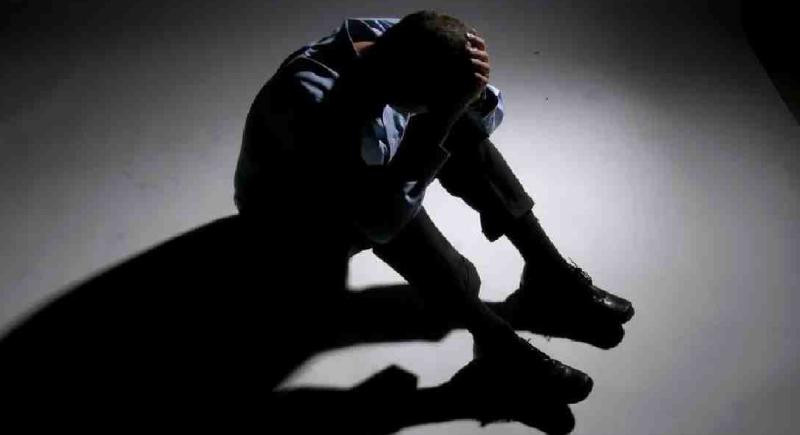By – Moazum Mohammad
The dramatic and hostile reordering of Jammu and Kashmir’s political status vis-a-vis the Indian state on August 5, 2019, was followed by a systematic emasculation of the old political order and its replacement by a new set of elected leaders. The BJP-led central government felt that taking control of local governance institutions (panchayat and municipal committees) was the best way to neutralize the traditional political parties and their legislators in the absence of a functioning assembly. But nearly two years down the line, grassroots democracy has become a hostage in the battle between the militants and government forces. There have been threats and executions and instances of elected representatives fleeing their native villages.
Rakesh Pandita was elected unopposed as a councillor from Tral in south Kashmir in the October 2018 municipal polls. The BJP worker was chairman of the local body, but operated from a base some 40 km from his ancestral village in Srinagar, where he stayed in a makeshift accommodation guarded by two policemen. Originally a family of beekeepers, the Panditas had fled Kashmir for the plains in Jammu three years after militancy erupted in 1989, but had stayed in touch with their Muslim neighbours. He was visiting a friend, Mushtaq Ahmad, in the neighbourhood on June 2 when three militants barged in and shot him dead. His friend’s daughter was also wounded in the attack.
Rakesh’s uncle Jawahar Lal Pandita, who is based in Jammu, says his nephew had left for Kashmir on May 31 to sign the bills so that employees could draw their salaries. The family had been grieving the death of Rakesh’s father who died on May 16. “Our neighbors in the village would commend his work,” says Jawahar. “Rakesh was overconfident, I kept telling him to keep a low profile. There is no justification for his killing, it helps nobody. They (the militants) could have issued a threat, but the killing has devastated his family.” The 50-plus councilor leaves behind a wife, a son who is in Class 12, a mother, and a mentally challenged brother in Jammu’s Roop Nagar, where vast numbers of Kashmiri Pandit families have settled over the years after fleeing the Valley.
Since local body elections started in 2018, a dozen or so council members have been killed in Kashmir. On March 30, two BJP councilors and a policeman were shot dead in north Kashmir’s Sopore. The killings have prompted the police to restrict the movement of elected members and confine them in ‘safe zones’. Since last year, dozens of members have been ferried from the far districts and lodged in hotels in Srinagar as it is impossible to provide security to everyone. Kashmir inspector general of police Vijay Kumar, in an advisory, has requested ‘protected people’ not to violate the SOPs and said movement will be allowed only after a ground assessment of threats.
The local BJP is now blaming the Lt. Governor-led administration for the lapses. Party general secretary (organisation) Ashok Koul says the attacks are aimed at halting the political and democratic process. “About 200 elected leaders are holed up in hotels in Budgam, Tangmarg and Srinagar. It is the state’s responsibility to ensure they can carry out their work in a secure environment,” says Koul. “Do you want to keep them indoors, allow no political activity and say you have wiped out militancy?”
In Sopore, Farooq Ahmad Rather laments that he got just one-and-a-half hours at home on June 5, when he visited after three months. “My son and daughter wept when the police said we had to return,” says the 35-year-old J&K Apni Party sarpanch from Dangerpora village. “What development can I do sitting in my hotel room? People complain that we vote and you sit in your VIP rooms. But they don’t know our plight.”
Like him, many of his counterparts elsewhere in the Valley say they are taken in a vehicle to the office and brought back to “jail” (a reference to their accommodation). “It is the failure of the government of India. We can’t do anything on our own and have to follow police rules,” says Ghulam H. Khan, chairman of a BDC (block development council) in Budgam. The ex-BJP leader is now with the Peoples Conference.
A month after the abrogation of Article 370, in September 2019, a delegation of sarpanchs met Union home minister Amit Shah in New Delhi. Hailing them as the new “leaders” of J&K, he tried to allay their fears and assured them of security and insurance cover. The J&K government has announced Rs 25 lakh to the next of kin of elected members in case of death due to militancy but the attempts to replace the established political mainstream have failed so far. This was evident when an amalgam of seven political parties, the People’s Alliance for Gupkar Declaration (PAGD) led by Farooq Abdullah, emerged as the largest bloc after the District Development Council (DDC) polls, winning 110 of the 280 seats across J&K (the BJP won 75 seats, almost all in Jammu). “They (the BJP) brought people and planted them here (in the Valley) as leaders. But it failed. The traditional parties may see a dip in their vote share, but this won’t make them irrelevant,” says Ghulam Khan.
The All J&K Panchayat Conference, an apex body of panchayat members led by Shafiq Mir, says the purpose of the panchayat elections has been defeated. His complaint is that while district development council (DDC) members have been provided security, many panchayat and BDC members are still at risk (J&K now has a three-tier local bodies structure). Soon after the panchayat elections in December 2018, Mir had led a delegation of 48 sarpanchs to a meeting with Prime Minister Narendra Modi, to put him in the picture on the security issues and the need to empower the panchayats. “But there is no change in government policy,” he says. “How can the local bodies serve people when elected members have to protect and secure themselves? People contested the elections hoping they will be empowered and given security. That hasn’t happened.”
The Centre has allocated Rs 1.08 lakh crore to the Union territory for this fiscal, with a provisional Rs 4,817 crore for rural development. But in the absence of a clear delineation of powers among the three tiers of governance, work has suffered badly. Irfan S. Panditpuri was elected to the 14-member DDC in Kupwara in December last year but says it’s been a “futile exercise”. “I have to spend from my own pocket for even fuel and office expenses. This is a trap and it will lead to corruption if the situation continues,” he says. In some parts of the Valley, there are already many such complaints. Last month, the sarpanchs and panchs in Shopian’s Chitragam in south Kashmir made a written complaint to the J&K anti-graft body about embezzlement of funds. They alleged that a block development office had used digital signatures without their consent to withdraw money. If the situation doesn’t change, many say even this last vestige of an elected administration could fall apart soon.






